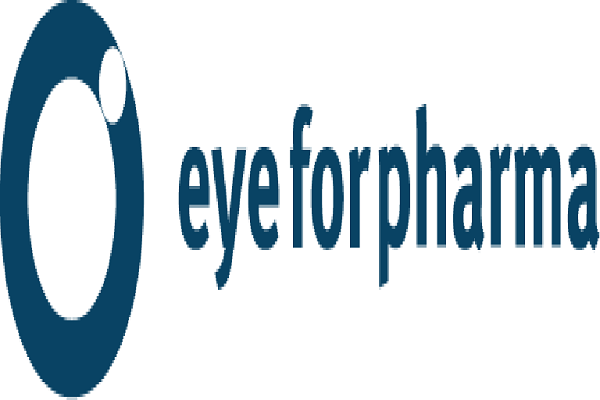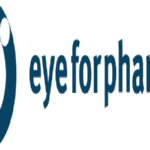Keys to success in value-based care: 7 stages of the health data life cycle
By Richard A. Royer, Chief Executive Officer, Primaris Healthcare Business Solutions
Back in the day – the late 1960s, when social norms and the face of America was rapidly changing – a familiar public service announcement began preceding the nightly news cast. “It’s 10 p.m. Do you know where your children are?”
Today, as the healthcare landscape changes rapidly with a seismic shift from the fee-for-service payment model to value-based care models, there’s a similar but new clarion call for quality healthcare: “It’s 2018. Do you know where your data is?”
Compliance with the increasingly complex alphabet soup of quality reporting and reimbursement rules – indeed, the fuel for the engine driving value-based car – is strongly dependent on data. The promising benefits of the age of digital health, from electronic health records (EHRs) to wearable technology and other bells and whistles, will occur only as the result of accurate, reliable, actionable data. Providers and healthcare systems that master the data and then use it to improve quality of care for better population health and at less cost will benefit from financial incentives. Those who do not connect their data to quality improvement will suffer the consequences.
As for the alphabet soup? For starters, we’re as familiar now with these acronyms as we are with our own birth dates: MACRA (the Medicare Access and CHIP Reauthorization Act of 2015), which created the QPP (Quality Payment Program), which birthed MIPS (Merit-based Incentive Payment System).
The colorful acronyms are deeply rooted in data. As a result, understanding the data life cycle of quality reporting for MACRA and MIPS, along with myriad registries, core measures, and others, is crucial for both compliance and optimal reimbursement. There is a lot at stake. For example, the Hospital Readmissions Reduction Program (HRRP) is an example of a program that has changed how hospitals manage their patients. For the 2017 fiscal year, around half of the hospitals in the United States were dinged with readmission penalties. Those penalties resulted in hospitals losing an estimated $528 million for fiscal year 2017.
The key to achieving new financial incentives (with red-ink consequences increasingly in play) is data that is reliable, accurate and actionable. Now, more than ever, it is crucial to understand the data life cycle and how it affects healthcare organizations. The list below varies slightly in order and emphasis compared with other data life cycle charts.
- Find the data.
- Capture the data.
- Normalize the data.
- Aggregate the data.
- Report the data.
- Understand the data.
- Act upon the data.
One additional stage, which is a combination of several, is secure, manage, and maintain the data.
- Find the data. Where is it located? Paper charts? Electronic health records (EHRs)? Claims Systems? Revenue Cycle Systems? And how many different EHRs are used by providers – from radiology to labs to primary care or specialists’ offices to others providing care? This step is even more crucial now as providers locate the sources of data required for quality and other reporting.
- Capture the data. Some data will be available electronically, some can be acquired electronically, but some will require manual abstraction. If a provider, health system or Accountable Care Organization (ACO) outsources that important work, it is imperative that the abstraction partner understand how to get into each EHR or paper-recording system.
And there is structured and unstructured data. A structured item in the EHR like a check box or treatment/diagnosis code can be captured electronically, but a qualitative clinician note must be abstracted manually. A patient presenting with frequent headaches will have details noted on a chart that might be digitally extracted, but the clinician’s note, “Patient was tense due to job situation,” requires manual retrieval.
- Normalize the data. Normalization ensures the data can be more than a number or a note but meaningful data that can form the basis for action. One simple example of normalizing data is reconciling formats of the data. For example, a reconciling a form that lists patients’ last names first with a chart that lists the patients’ first name first. Are we abstracting data for “Doe, John O.” or “John O. Doe?” Different EHR and other systems will have different ways of recording that information.
Normalization ensures that information is used in the same way. The accuracy and reliability that results from normalization is of paramount importance. Normalization makes the information unambiguous.
- Aggregate the data. This step is crucial for value-based care because it consolidates the data from individual patients to groups or pools of patients. For example, if there is a pool of 100,000 lives, we can list ages, diagnosis, tests, clinical protocols and outcomes for each patient. Aggregating the data is necessary before healthcare providers can analyze the overall impact and performance of the whole pool.
If a healthcare organization has quality and cost responsibilities for a pool of patients, they must be able to closely identify the patients that will affect the patient pool’s risks. Aggregation and analyzing provides that opportunity.
- Report the data. Reporting of healthcare data to registries and the Centers for Medicare and Medicaid Services (CMS) is not new, but it is a growing need. Required reporting will become even more integral to health care quality improvement as private payers follow the CMS lead towards value-base care.
- Understand the data. What was effective? What is the clinical point of view versus a dollars/cost point of view? How are these two points of view reconciled to get the “right” results?
When Drug B is half the price but equally as effective as Drug A, that is an example of evidence-based medicine, which was the result of the data life cycle. When healthcare organizations and providers have data they can understand, a root cause analysis is an ideal way to achieve sometimes conflicting goals of quality and cost– and move forward – on solving deficiencies or other problems flagged by the data.
- Use the data. There are other crucial facets of the data life cycle that must be dealt with, including data maintenance and management and purging or destroying data in a way that is compliant with HIPAA. But the most important function of data is using it to improve clinical processes and outcomes, the patient experience, and the financial bottom line.
Data that is accurate and reliable is not all that useful until it is actionable. How is the data being used to manage quality of care and cost of care? The final stage in the data life cycle is certainly the most important. The technology and human capital needed to accomplish the other aspects of the life cycle are extensive, and expensive. But data gathering is a lost cause and, really, an exercise in futility unless the flurry of data and reporting activity leads to action. In the age of value-based healthcare, data is the key that will allow providers to be financially successful in the future as payments become more heavily based on value, and patients seek providers that meet their growing expectations.
























































